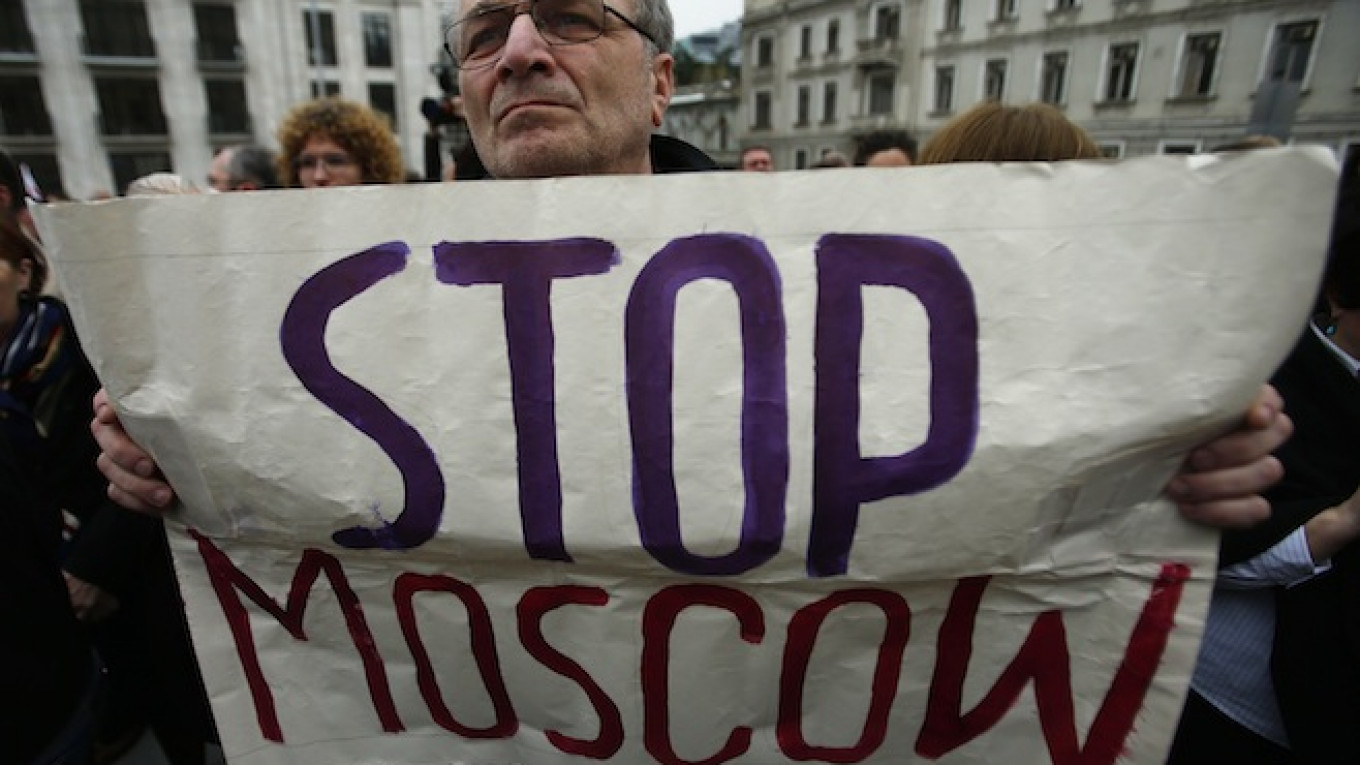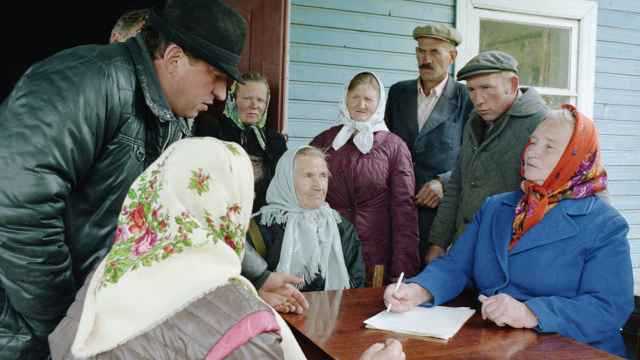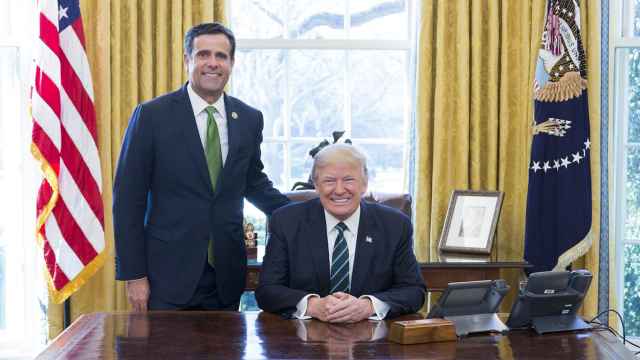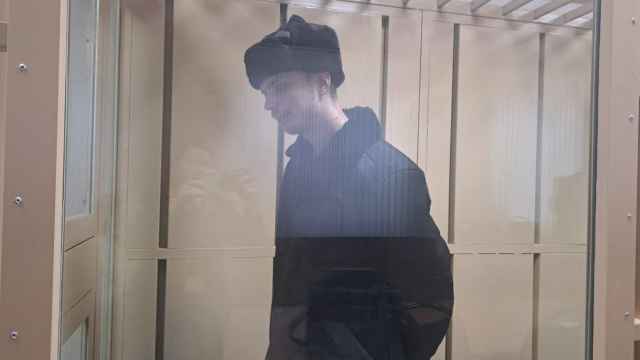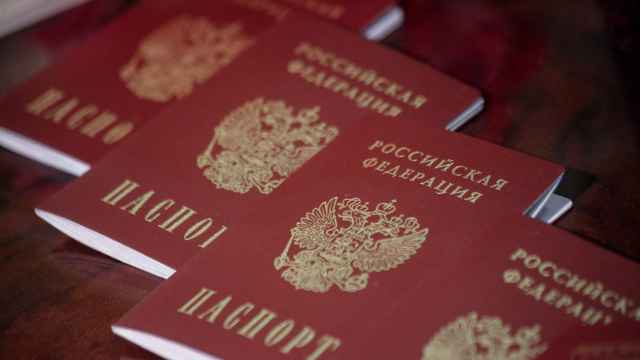KIEV/UNITED NATIONS — The United Nations Security Council has held an emergency session to discuss the escalating crisis in Ukraine, just hours before a deadline by Kiev for pro-Russian separatists to disarm by Monday morning or face a "full-scale anti-terrorist operation" by its armed forces.
The Council met Sunday at Russia's request after Moscow called Kiev's plans to mobilize the army to put down a rebellion by pro-Russian militants in eastern Ukraine "criminal."
Britain's UN ambassador said Russia had massed tens of thousands of well-equipped troops near the Ukrainian border in addition to the 25,000 troops it recently moved into Crimea, which Moscow seized last month.
"Satellite images show that there are between 35,000 and 40,000 Russian troops in the vicinity of the border with Ukraine equipped with combat aircraft, tanks, artillery and logistical support units," Ambassador Mark Lyall Grant said during the UN emergency meeting.
"This is in addition to the 25,000 Russia troops based illegally in Crimea," Lyall Grant added in his speech during an emergency meeting of the U.N. Security Council on Ukraine.
Angered by the death of a state security officer and the wounding of two comrades near the flashpoint eastern city of Slovyansk, Ukrainian acting president Oleksander Turchinov had earlier given rebels occupying state buildings until 06:00 GMT to lay down their weapons.
The separatists are holed up in the local headquarters of the police and of the state security service, while others have erected road blocks around Slovyansk, about 150 km from the Russian border.
"The National Security and Defence Council has decided to launch a full-scale anti-terrorist operation involving the armed forces of Ukraine," Turchinov said in an address to the nation.
Russia's Foreign Ministry called the planned military operation a "criminal order" and said the West should bring its allies in Ukraine's government under control.
"It is now the West's responsibility to prevent civil war in Ukraine," the ministry said in a statement.
The 15-nation council has held numerous emergency meetings on Ukraine but has been incapable of taking any concrete action because of Russia's sharp disagreements with the U.S. and Europe.
The council has held numerous emergency meetings on Ukraine but has been incapable of taking concrete action because of Russia's sharp disagreements with the United States and Europe.
Last month Russia vetoed a Western draft resolution that would have condemned Crimea's referendum on secession from Ukraine, held when it was already occupied by Russian military forces.
As expected, the council took no action on Sunday.
Russian Ambassador Vitaly Churkin dismissed the criticisms of Russia's actions in Ukraine, telling the council, "Many inaccurate accusations were made against Russia."
He blamed the Kiev government for the unrest across southeastern Ukraine and described its threatened military operation in the region as a "criminal use of force." He was referring to Ukraine's ultimatum to pro-Russian separatists to disarm by Monday or face armed force.
"Things might take an irreversible turn for the worst," Churkin said about the ultimatum, without elaborating.
"The authorities [in Ukraine] do not want to listen to those who do not accept the imposed dominance in Kiev of national radicals and chauvinists, Russophobic, anti-Semitic forces," he said.
"The grotesque Russophobia and embedded hatred has become the norm in the Verkhovna Rada as well."
A Message from The Moscow Times:
Dear readers,
We are facing unprecedented challenges. Russia's Prosecutor General's Office has designated The Moscow Times as an "undesirable" organization, criminalizing our work and putting our staff at risk of prosecution. This follows our earlier unjust labeling as a "foreign agent."
These actions are direct attempts to silence independent journalism in Russia. The authorities claim our work "discredits the decisions of the Russian leadership." We see things differently: we strive to provide accurate, unbiased reporting on Russia.
We, the journalists of The Moscow Times, refuse to be silenced. But to continue our work, we need your help.
Your support, no matter how small, makes a world of difference. If you can, please support us monthly starting from just $2. It's quick to set up, and every contribution makes a significant impact.
By supporting The Moscow Times, you're defending open, independent journalism in the face of repression. Thank you for standing with us.
Remind me later.


